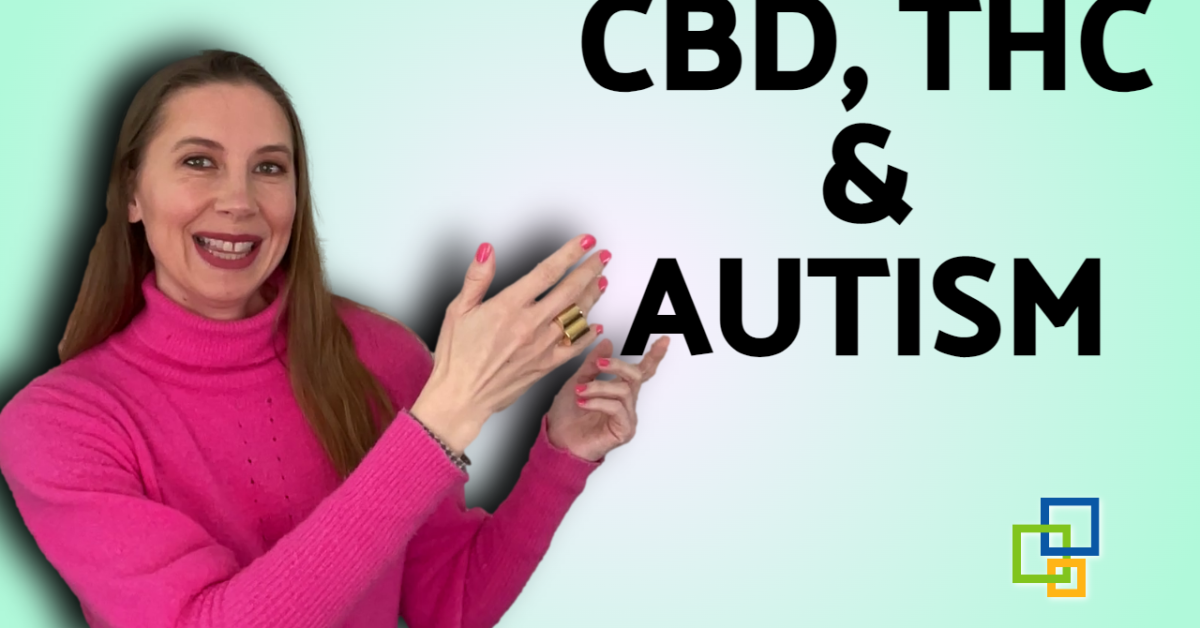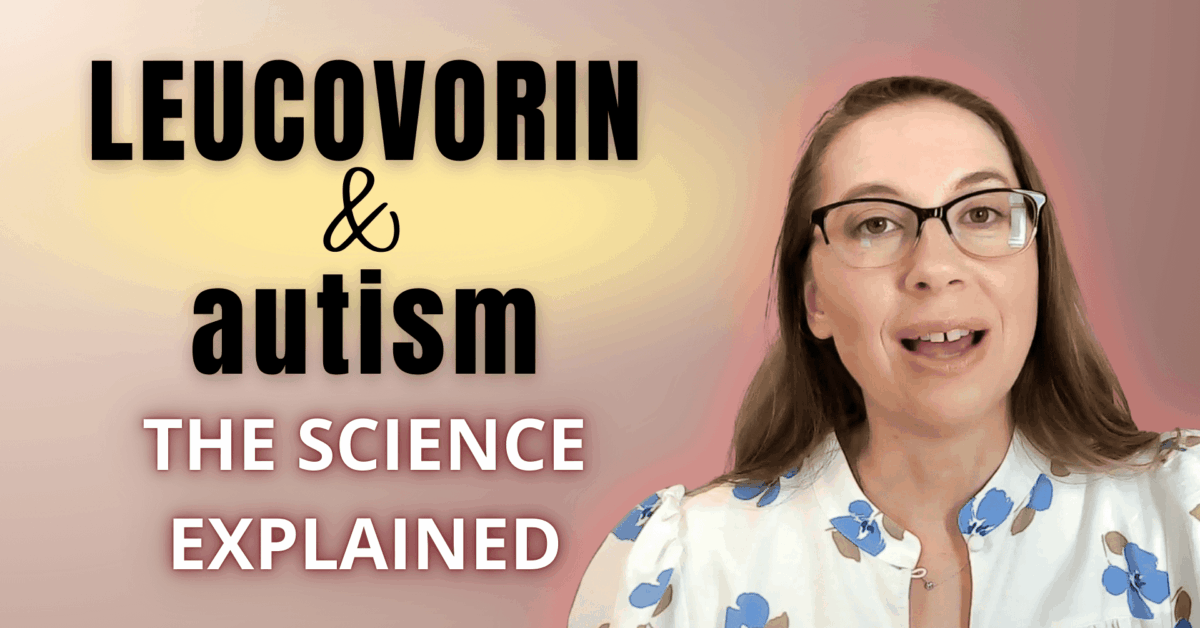Many parents are using CBD oil to help their children with autism, to sleep, to address seizures, and also inflammation. Some parents are giving CBD and THC together, but that’s where there tends to be some concerns.
In the scientific literature, it has been noted that THC consumption especially at a young age can lead to addiction, cognitive decline, motivational loss, and psychosis. However, co-consumption of CBD might actually reduce these risks. There was a clinical trial investigating CBD and THC in those with autism. This post will explore the results.
Let’s get into the clinical trial results for the Cannabinoid treatment for autism.
Cannabis – the main components of the cannabis plant are THC and CBD. THC activates the Type-I cannabinoid receptor, CB1-R, in the brain. It is psychoactive and can lead to anxiety and psychosis. CBD is an allosteric modulator of the CB1- R and might actually decrease the effects of a CB1-R agonist, such as THC. So CBD might actually decrease the effects of THC. CBD is not psychoactive and has a relatively high toxicity threshold. THC consumption, especially at a young age, can lead to addiction, cognitive decline, motivational loss, psychosis, and co-consumption of CBD might actually reduce these risks.
CBD and Autism
Many parents are already giving their child with autism CBD, and this is just one little snippet of some research: A single oral administration of 600 mg CBD to 34 men (there were 17 neurotypicals and 17 people with autism). They found that there was an increase in prefrontal GABA activity in neurotypicals. However, there’s decreased GABA activity in those with autism.
And here’s another example of how CBD is used in health, specifically in epilepsy:
Epidiolex is a drug that was approved by the FDA in 2018. And it’s a drug that is derived from CBD. It’s actually a pure CBD compound, and it’s been approved for the treatment of two severe types of epilepsy. 10% to 30% of those with autism also have epilepsy and just to point out here, Epidiolex is not approved in autism currently, this slide is really just to show you how CBD is actually being used in mainstream health.
The Clinical Trial
Placebo-controlled, double-blind comparison of two oral cannabinoid solutions. And there were 150 participants in this clinical trial. Participants had autism, and they were aged 5 to 21 years old. Participants were randomly assigned to one of three treatments for twelve weeks, followed by a four-week washout and then a predetermined crossover for another twelve weeks to further assess tolerability.
The treatments were
- Oral placebo
- Whole plant cannabis extract containing CBD and THC(the ratio was 20 to one) or
- Pure CBD and pure THC at the same ratio.
Results
Overall, the research paper says that there are no drastic changes in behavior. They did not see drastic changes in behavior.
However, they go on to say that specifically disruptive behavior was either much or very much improved and if you have a child with autism that has disruptive behavior to get any improvement in this, is absolutely wonderful. So I’m sure some parents will say no this is a drastic change. So it really depends again on the observer. But overall the research paper says that drastic changes in behaviors were not seen. However, disruptive behavior was either much or very much improved.
A good thing to know is that there were no treatment-related serious adverse events and the common adverse events included sleepiness and decreased appetite. That is always something important to keep in mind, a lot of times we think “Oh CBD, that should stimulate the appetite!”. Not necessarily always. So CBD and THC have different effects on people so sometimes you might see an increase in appetite but you also might see a decrease in appetite. Just depends on the person.
Clinical Trial Conclusions
This interventional study provides evidence that two cannabinoid solutions administered for three months are well tolerated. Evidence for the efficacy of these interventions is mixed and insufficient. However, further testing is recommended (since there were no severe adverse events). There were changes seen in some of the participant’s behaviors specifically in disruptive behaviors which are really great to be able to target and to improve upon those. So obviously further investigation is necessary.
I will point out that two authors of this research receive personal fees and stock options for advisory roles at the manufacturer of this cannabinoid solution and here are some references.
References
1.https://pubmed.ncbi.nlm.nih.gov/30538288/




